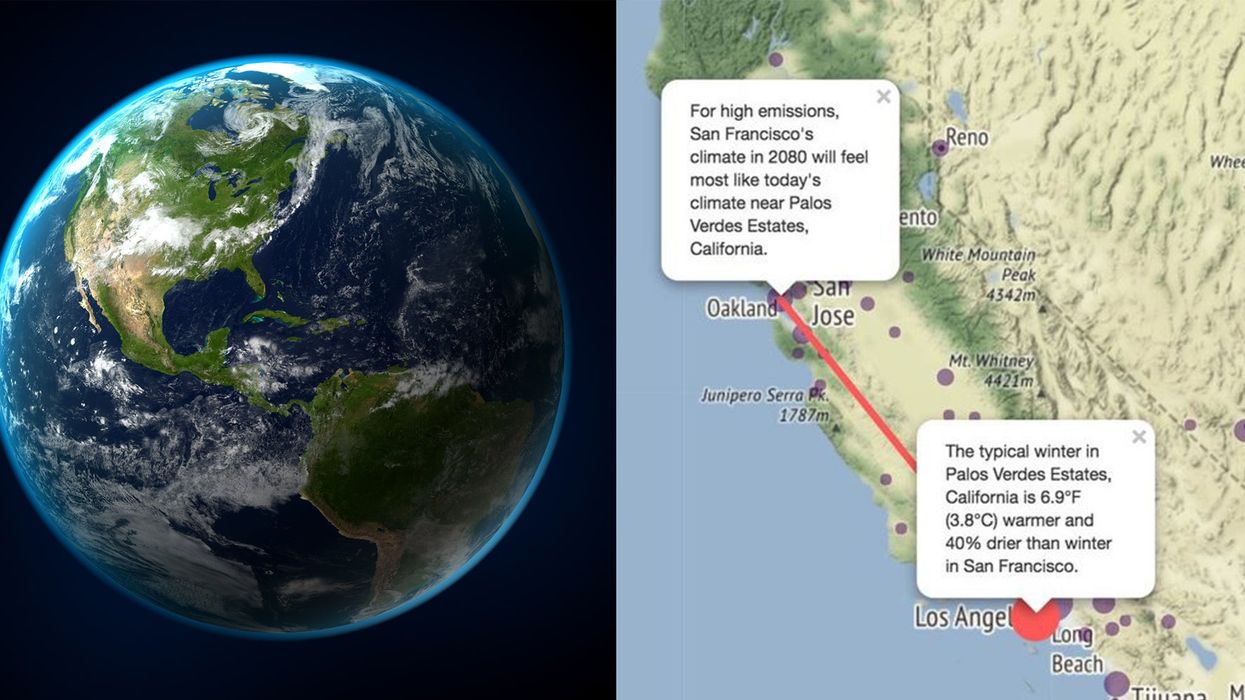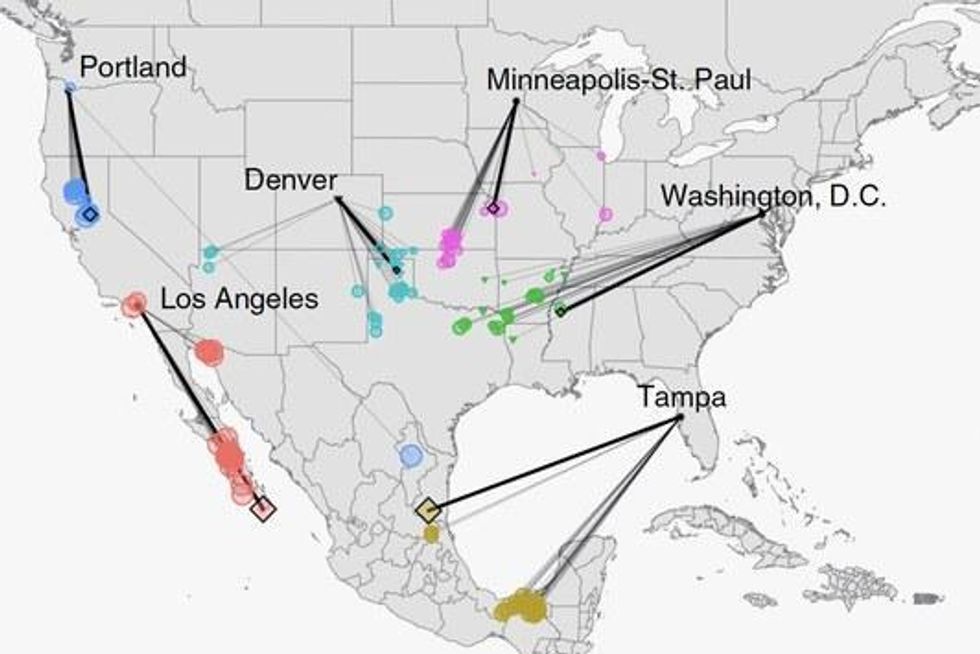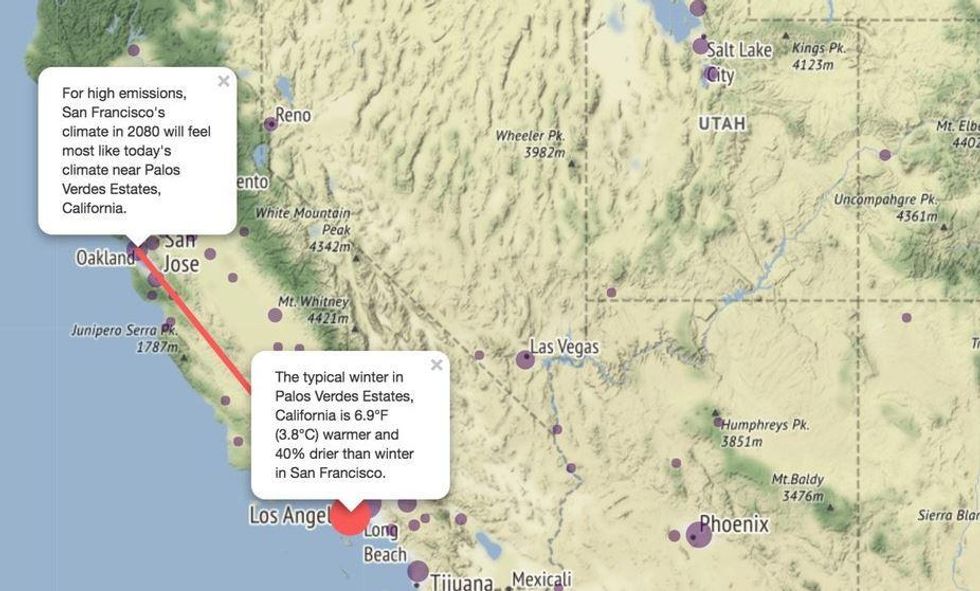News
Greg Evans
Feb 13, 2019

Picture:
iStock/Getty Images/ Matt Fitzpatrick/ University of Maryland Centre for Environmental Science
A new interactive map has been published online that will show you how climate change will affect the planet by the year 2080.
As you may be aware, climate change deniers like Donald Trump and Fox News continue to dismiss science and facts because they cannot see it taking place before their eyes.
That's what the new map aims to show by allowing users to see an estimated visualization of what the climate in North America will look like.
According to the map, cities around the United States will experience dramatic change with locations in southern states feeling more like Mexico and Florida feeling closer to Central America.

The map has been created by the University of Maryland Centre for Environmental Science, with the system being detailed in a new paper by Nature Communications.
The aim of the map was to make this crucial information more digestible and less abstract to the public, by comparing 540 urban areas to the climate of a familiar location.

The map was made possible thanks to a statistical technique named climate-analogue mapping which provides comparisons to modern day and future climates of urban areas.
Speaking to Newsweek, Dr Matt Fitzpatrick an associate professor at the University of Maryland said:
Our results show just how dramatic a transformation climate is expected to undergo over the next several decades. These changes are already underway.
If emissions continue at the same rates, many urban areas will eventually experience climates unlike any found at present in the western hemisphere North of the equator.
Our results clearly show the effect that reducing emissions could have on the magnitude of future climate change.
The scientists who worked on the map have acknowledged that it does miss out important issues like sea levels, health complications, extreme weather events and the influx of non-native species.
Fitzpatrick adds:
Everyone should be concerned, but especially those living in places that are particularly dependent on the current climate regime to provide adequate water and where coastal flooding will become a substantial threat.
HT Newsweek
More: A 15-year-old explained why she’s striking for climate change and it’s really inspiring

Top 100
The Conversation (0)













